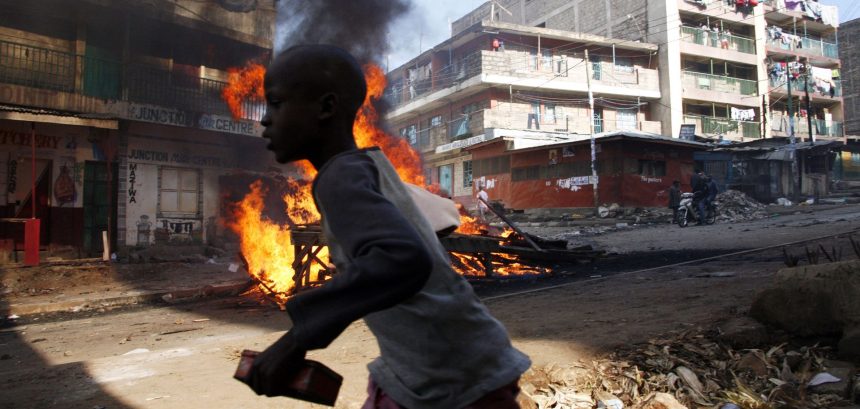In recent years, the influence of tribalism on African politics has become a subject of great concern and debate. Tribalism, which refers to the strong loyalty and identification with one’s ethnic or tribal group, has had significant implications for the political landscape of many African countries. We will explore the various ways in which tribalism impacts African politics and the challenges it poses to democratic governance and national unity.
Historical Context
To understand the impact of tribalism on African politics, it is essential to consider the historical context in which these dynamics have emerged. Many African nations were created through colonial rule, resulting in arbitrary borders that disregarded ethnic, linguistic, and cultural affiliations. This legacy has contributed to a sense of marginalization and inequality among different tribal groups, leading to heightened ethnic tensions and rivalries.
Divisive Politics and Ethnocentric Voting
One of the most significant impacts of tribalism on African politics is the rise of divisive politics and ethnocentric voting patterns. Political leaders often exploit tribal loyalties to gain and maintain power, thereby deepening divisions within society. This phenomenon is particularly prevalent during elections, where candidates appeal to tribal sentiments, making promises and promoting policies that primarily benefit their own ethnic group. Consequently, voters often prioritize tribal affiliation over qualifications and policy platforms, leading to the entrenchment of tribal-based politics.

Weak Governance and Corruption
Tribalism has also contributed to weak governance and widespread corruption in African politics. When leaders prioritize the interests of their tribal group over national development, they often engage in nepotism, favoritism, and patronage systems. This undermines meritocracy and hinders the effective functioning of public institutions. Additionally, tribalism can foster a culture of impunity, as individuals from the dominant ethnic group may believe they are immune to prosecution, further exacerbating corruption and undermining the rule of law.
Conflict and Violence
Another devastating consequence of tribalism in African politics is the potential for conflict and violence. When political power is closely tied to ethnic identity, disputes over resources, representation, or political control can escalate into full-blown inter-tribal conflicts. These conflicts often result in widespread violence, displacement of communities, and loss of lives. The ethnic dimension of such conflicts further entrenches divisions and makes post-conflict reconciliation and nation-building efforts more challenging.
Challenges to Democracy and National Unity
Tribalism poses significant challenges to the establishment and consolidation of democratic governance in Africa. In ethnically diverse countries, the dominance of tribal politics undermines the principles of inclusivity, equality, and fair representation. It hinders the formation of broad-based political parties and coalitions that can address the diverse needs and aspirations of the population. Furthermore, tribal-based politics often leads to a lack of trust in state institutions and fosters a sense of exclusion among marginalized groups, which can ultimately threaten national unity.
Strategies for Mitigating Tribalism
Addressing tribalism in African politics requires comprehensive and multifaceted strategies. Here are a few recommendations that can contribute to mitigating the impact of tribalism:
1. Promoting Civic Education and Awareness
By investing in civic education programs, governments and civil society organizations can raise awareness about the dangers of tribalism and promote the values of tolerance, inclusivity, and national unity. Educating citizens about the importance of individual rights, democratic principles, and the common good can help counteract divisive tribal narratives.
2. Strengthening Democratic Institutions
Building strong democratic institutions, such as independent judiciaries, impartial electoral commissions, and transparent governance structures, is crucial for reducing the influence of tribalism. These institutions can ensure fair representation, enforce the rule of law, and provide a level playing field for political competition.
3. Encouraging Inter-tribal Dialogue and Reconciliation
Promoting inter-tribal dialogue and reconciliation initiatives can help bridge divides and foster a sense of shared national identity. Facilitating platforms for constructive conversations, cultural exchanges, and collaboration can break down stereotypes and foster understanding among different ethnic groups.
4. Fostering Economic Development and Social Welfare
Addressing socio-economic disparities and promoting inclusive economic development can help alleviate some of the grievances that fuel tribal tensions. When citizens have access to education, healthcare, and economic opportunities irrespective of their tribal affiliation, it reduces the appeal of divisive politics.
5. Engaging Youth and Civil Society
Empowering youth and civil society organizations to actively participate in political processes can help counteract tribalism. By promoting youth leadership, encouraging civic engagement, and supporting community-driven initiatives, it is possible to build a generation of politically aware and socially conscious individuals who prioritize national interests over tribal affiliations.
Conclusion
Tribalism’s impact on African politics cannot be understated. It has led to divisive politics, weak governance, conflict, and challenges to democratic consolidation and national unity. However, by implementing strategies that promote civic education, strengthen democratic institutions, encourage dialogue, foster economic development, and engage the youth, African nations can mitigate the negative effects of tribalism. It is imperative to recognize the importance of transcending tribal boundaries and fostering a sense of collective identity for the overall progress and stability of the continent.

